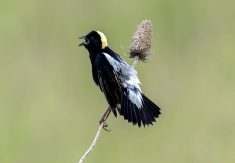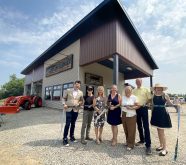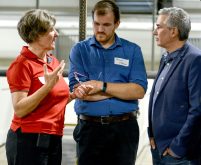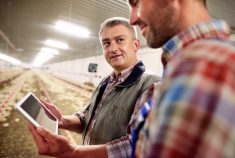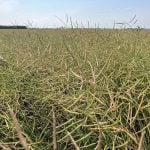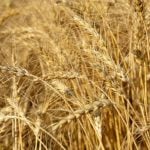For the third time in two years, the position of Executive Director is vacant at the Ontario Soil and Crop Improvement Association (OSCIA).
In a letter to members Sept. 30, OSCIA Chair Eleanor Renaud stated the decision to remove Kerry Wright as executive director was made “to transition to a more collaborative leadership model.”
Her departure is the latest in a growing series of top-level changes within OSCIA.
Read Also
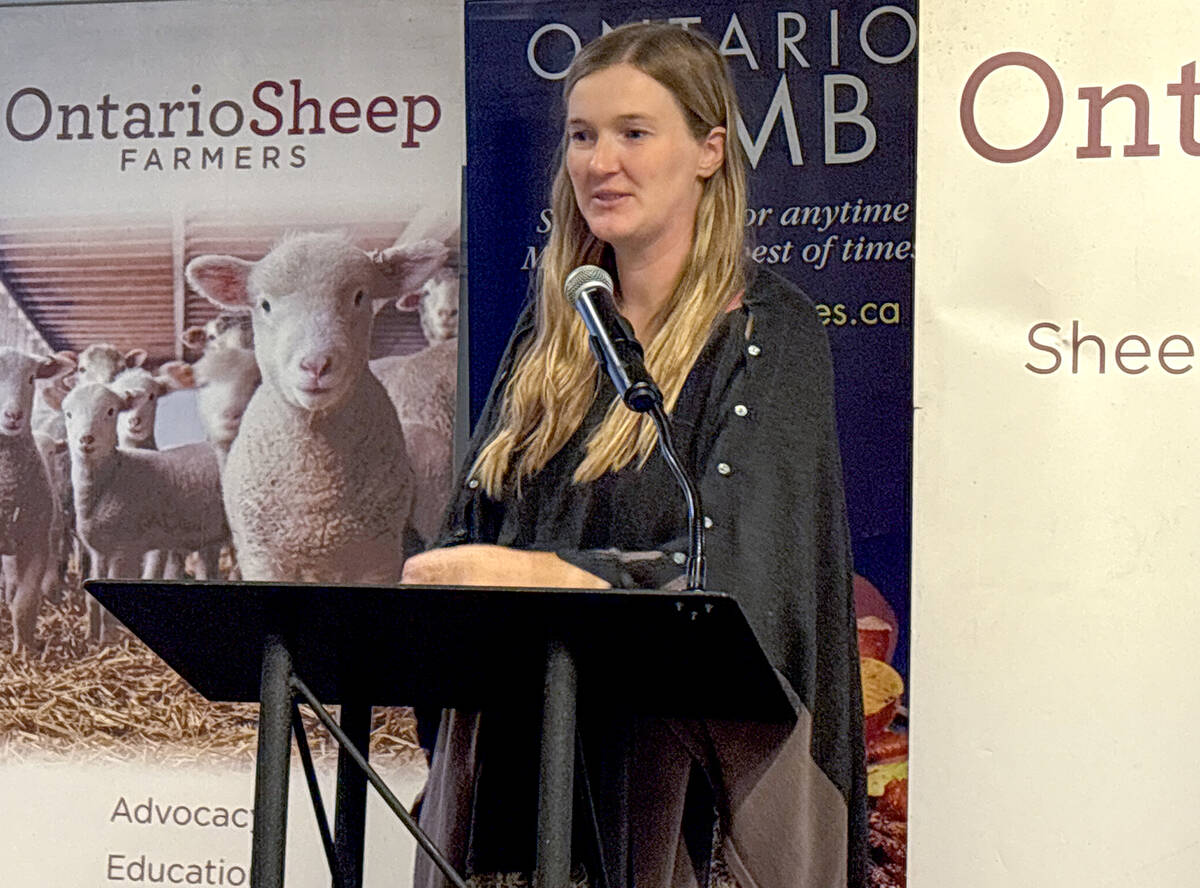
Footflats Farm recognized with Ontario Sheep Farmers’ DLF Pasture Award
Gayla Bonham-Carter and Scott Bade, of Footflats Farm, win the Ontario Sheep Farmers’ 2025 DLF Ontario Pasture Award for their pasture management and strategies to maximize production per acre.
Wright – an experienced management professional in the agriculture sector – had been active in the position for eight weeks. She is the third executive director to be hired since the retirement of long-time executive director Andrew Graham in 2023, with an OSCIA board member holding the position in the interim periods.
Turnover at the organization goes beyond its executive position. Weeks prior to Wright taking on her role, three senior managers were simultaneously removed from the organization: The Director of Research and Knowledge Transfer, Director of Programs, and Manager of Client Services. These positions remain unfilled at the time this article was authored, and only the organization is currently seeking to fill the Director of Research and Knowledge Transfer position.
In the member letter, Renaud said “This transition is not a new direction, but rather a continuation of work we have been advancing over the past two years. Together with the Leadership Team, the Board has been developing a structure that emphasizes shared responsibility, collective decision-making and direct engagement.
The letter also says the board is currently developing an organizational approach “that emphasizes shared responsibility, collective decision-making and direct engagement.” The details of this initiative will be disclosed “in the coming weeks.”
Given the breadth of Ontario Soil and Crop’s mandate, questions and confusion about the organization’s direction have been ongoing among farmers and others involved with the organization. Speaking on Oct. 2, Phil Oegema, past president of the association, says the board recognizes the optics of its recent decisions “aren’t the best,” but actions taken to-date are in pursuit of goals identified in its 2025-2027 Strategic Work Plan.
The strategic plan contains three overarching directives. The first – “Continue Our Organizational Transition” – highlights the intent to, as written in the plan, create “a culture where team members feel empowered to contribute, learn, and adapt and ensure that our programs are agile and aligned. This will allow us to meet our strategic goals and drive real improvement to Ontario’s agricultural community.”
When asked what a more collaborative leadership model means in practice, Oegema points to more interaction, cooperation, and transparency between departments, and between departments and the board of directors.
“What’s going to be different is the expectation of the board. This is not going to be a strong hierarchy…The board wants to hear from the department heads,” he says. Earlier, Oegema affirmed there is likely still a need for some kind of executive or management position, although “it’s clear we have not been successful” in finding the right individual. A “right person in the right job” approach will also inform efforts at filling other positions.
“We’re making an organizational transition. We’re working on growing our governance. It’s a different way of doing business,” Oegema says. “What we’re seeing is the board is in fact quite dialed in, and we’ve been working on these things for over a year.”






